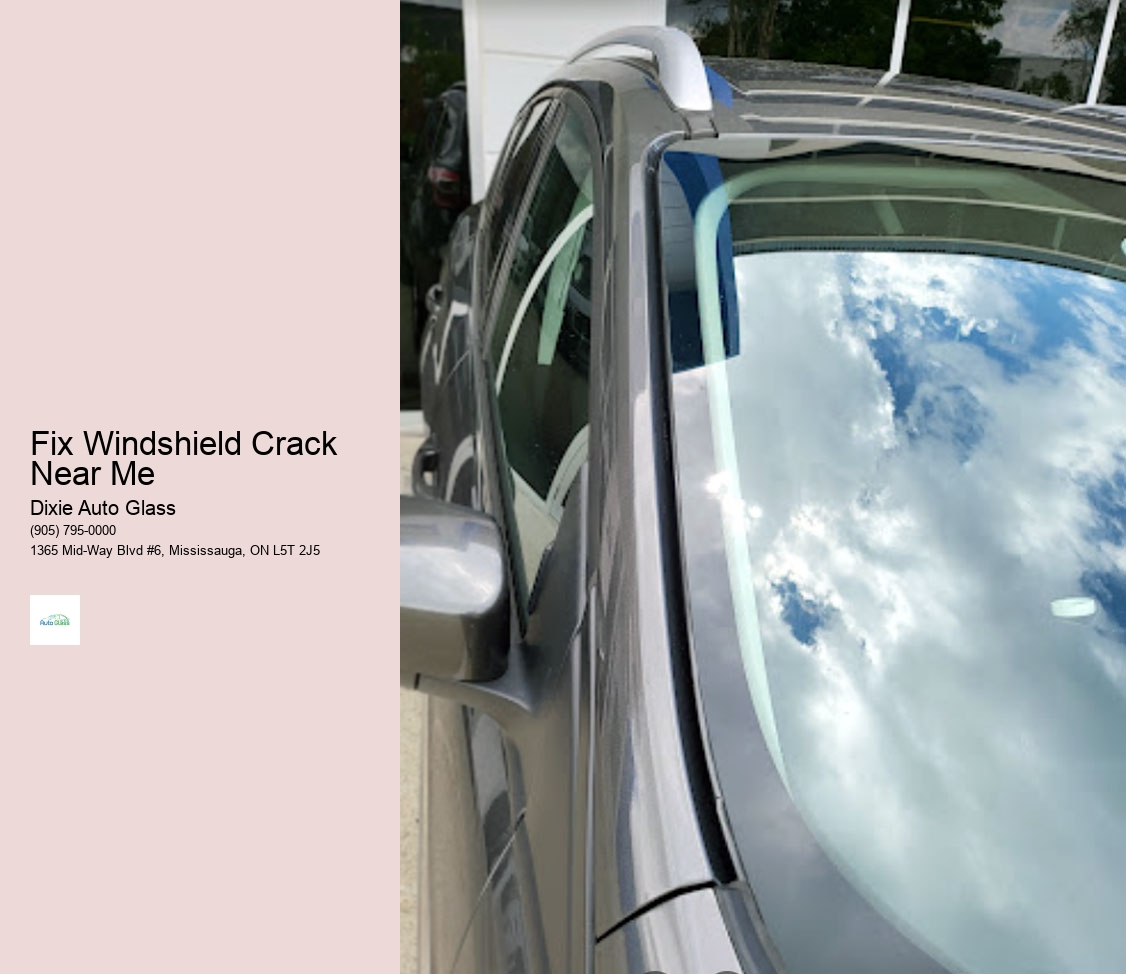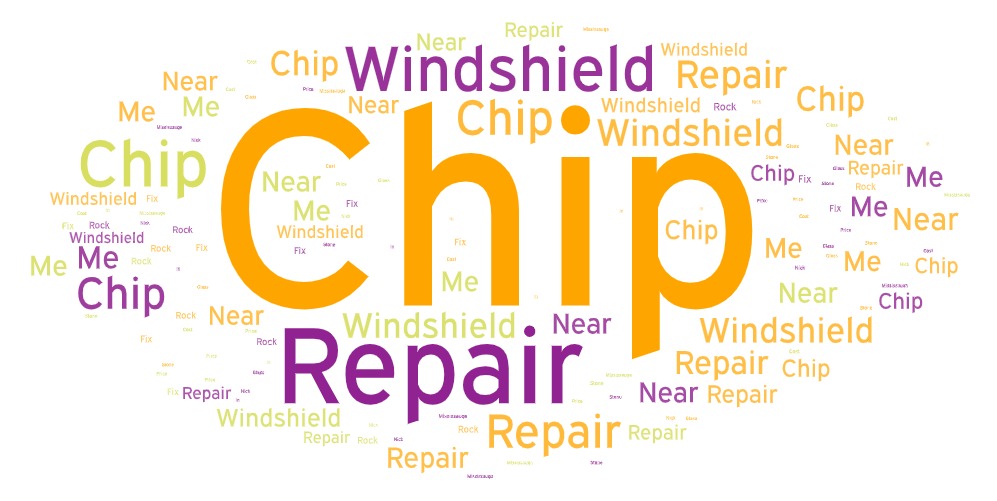

Your windshield is more than just glass—it’s a vital part of your vehicle’s safety system. At Dixie Auto Glass in Mississauga, we specialize in repairing chips and cracks with speed, care, and precision. Whether it’s road debris or weather damage, we’ll help restore your windshield’s integrity and your peace of mind.
We treat every customer like a neighbor because we are one. Our experienced technicians use industry-leading resins and tools to repair auto glass efficiently and effectively. You don’t need to wait around or rearrange your life—we offer same-day service and mobile repairs across Mississauga, from Port Credit to Meadowvale and everywhere in between.
We also make the insurance process easy by working directly with your provider. Most repairs are quick, painless, and often cost nothing out of pocket. For trusted windshield repairs in Mississauga with unmatched convenience and care, turn to Dixie Auto Glass. Book today and drive with confidence.
Windshield repair resin is a critical component in the auto glass repair industry. This specialized adhesive is formulated to mend cracks and chips in automotive glass, restoring both its strength and clarity. The primary ingredient is a methacrylate monomer, which provides the base for the resin's adhesive properties. Coupled with this are various additives that enhance the resin's performance; these may include silanes that promote adhesion to the glass surface, ultraviolet inhibitors to protect against sun damage, and plasticizers that improve flexibility.
The effectiveness of windshield repair resin largely depends on its viscosity. Viscosity determines how well the resin can penetrate into tiny cracks and crevices within damaged glass. For minor chips, a lower viscosity resin is used because it flows easily into small spaces. In contrast, higher viscosity resins are better suited for larger breaks as they can fill more significant gaps without shrinking back during curing. Achieving the right balance between fluidity and stability ensures that once cured, the resin maintains its integrity within the crack or chip.
Curing is an essential step in windshield repair that solidifies the liquid resin into a hard, transparent substance bonding with the glass. Typically, UV light initiates this process by triggering a catalyst in the resin that causes it to polymerize rapidly. The quality of curing equipment varies but must provide adequate UV wavelengths to ensure complete polymerization throughout all layers of applied resin.
After curing, it's crucial for repaired areas to match as closely as possible with original windshield strength to maintain safety standards. High-quality resins achieve bond strengths capable of withstanding impact and preventing further cracking while enduring temperature fluctuations and mechanical stresses experienced during regular vehicle operation. They also possess optical clarity comparable to original glass, minimizing visual distortions at points of repair.
Lastly, environmental factors play a role in both applying windshield repair resins and predicting their longevity. Technicians must consider ambient temperatures since extreme cold or heat can affect how resins cure or behave once hardened on a windshield surface. Additionally, modern formulations aim for reduced environmental impact by avoiding volatile organic compounds (VOCs) commonly found in earlier generations of auto repair materials ensuring compliance with increasingly stringent environmental regulations.
View Windshield Repair Mississauga Dixie Auto Glass in a full screen map
| General Windshield & Auto Glass Fixes – Near You | |
|---|---|
| Windshield Repair Near Me | Reliable and local windshield repair services across Mississauga. |
| Windshield Fix Near Me | Fast solutions for cracked or chipped windshields close by. |
| Auto Windshield Repair | Professional auto glass specialists fixing chips and cracks fast. |
| Fix Car Windshield Near Me | Mobile and in-shop repair for damaged windshields near you. |
| Broken Windshield Repair | Full-service repair or replacement for broken windshields. |
Small chips on a windshield might seem like a minor nuisance rather than an actual problem. However, their inconspicuous size belies the potential for significant damage. A chip is usually the result of a small object, like a stone or piece of debris, striking the windshield at high speed. While it may appear superficial, the impact can create micro-cracks around the chip's perimeter that compromise the structural integrity of the entire glass panel.
Over time, a small chip can develop into a larger crack without warning. Factors such as temperature changes, vehicle vibrations from driving on rough roads, or even pressure from washing your car can cause these initial fractures to spread across your windshield. Once this happens, not only does it obstruct your view while driving - which is hazardous in itself - but it also diminishes the windshield's ability to protect you in case of an accident or rollover event.
The best course of action when discovering a chip is prompt repair. Many auto service providers offer relatively inexpensive resin injection services that fill in and stabilize chips before they transform into larger cracks. Ignoring a chip leaves it exposed to elements like rain and dirt that can infiltrate and undermine repair efforts over time. Addressing chips quickly preserves both visibility through your windshield and the overall safety function it provides.
Failing to fix a small chip promptly can lead to costly full-windshield replacements down the line. Insurance policies often cover chip repairs fully without deductible consequences because insurers recognize that early intervention saves money for everyone involved by preventing more severe damage. In contrast, waiting until a full-blown crack appears not only incurs greater costs but also runs against legal safety standards in many areas requiring unobstructed driver visibility – potentially leading to traffic citations on top of repair expenses.

DIY kits work for minor chips or small cracks but aren't as reliable or durable as professional repairs.
You should be concerned if it's larger than 6 inches, near the edges, or obstructing your view.
They can work for very small damage, but results vary and may not be as clear or strong as professional fixes.
Yes, small cracks (typically under 6 inches) can often be repaired without full replacement, especially if they're not in the driver's line of sight.
Most kits are designed for cracks under 6 inches and chips smaller than a quarter.